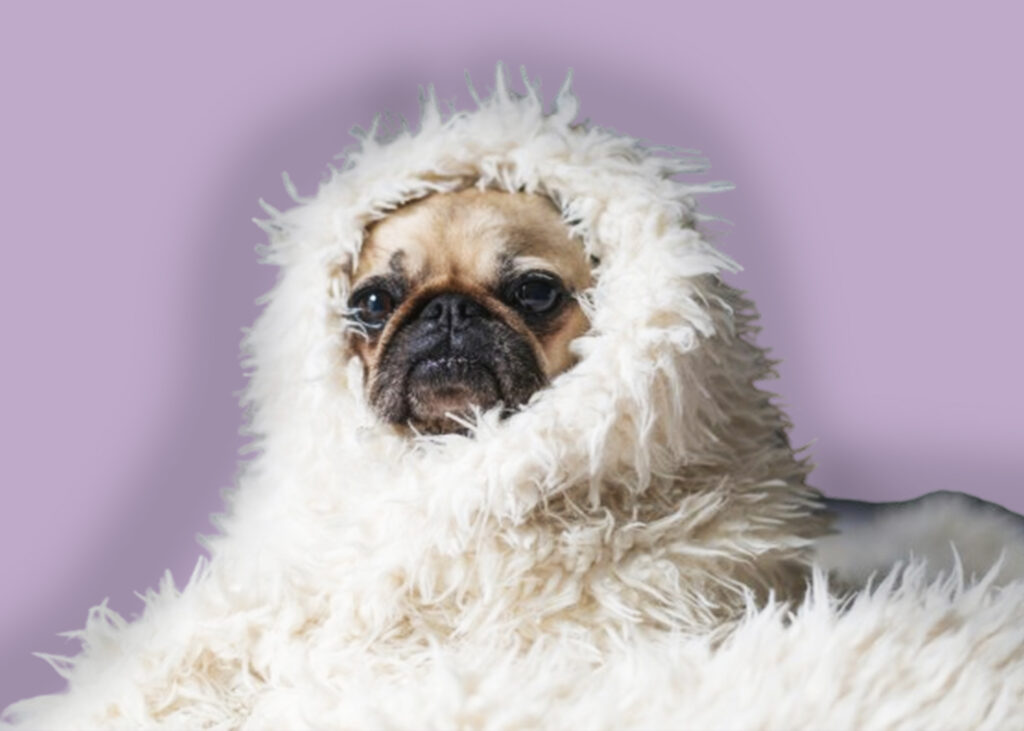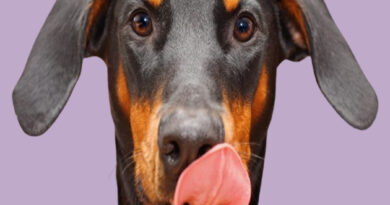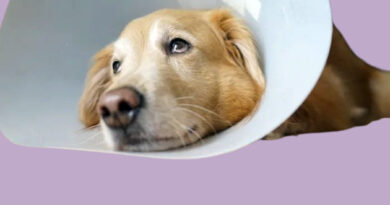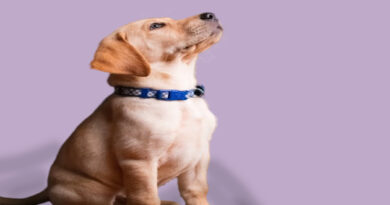Uncovering the Mystery: Examining Dog Behavior Change After Vaccination 2024
We value the happiness and company our dogs provide us as committed pet owners. Vaccinations are a critical component of the care that is provided to ensure their well-being, which is our first priority. The first line of defense against potentially dangerous illnesses that could harm our animal companions is these preventive actions. But have you ever observed behavioral changes in your dog following a visit to the veterinarian for vaccinations?

We set out to investigate the fascinating realm of Dog Behavior Change After Vaccination in this blog post. Vaccinations are essential for protecting our dogs, but after receiving a vaccination, it’s not unusual for them to display some intriguing behavioral changes. Pet owners may get interested in and occasionally worry about these variations, which can range from transient temperamental shifts to changed activity levels.
This article seeks to explain the usual Dog Behavior Change After Vaccination and provides insights into the reasons behind these changes. More significantly, we’ll offer advice on how to handle and navigate these changes so that everything runs smoothly and doesn’t cause stress for you and your cherished dog. Let’s explore the exciting world of behavior changes following vaccinations and arm ourselves with knowledge to improve our furry family members’ health.
Knowing Dog Behavior Change After Vaccination and How They Affect Dogs
As committed pet owners, our first concern is for our beloved friends’ welfare. Recognizing the need for immunizations to maintain our dogs’ health is essential to fulfilling this obligation. In this blog post, we set out to explore the complexities surrounding canine vaccines, including their mechanism of action and the significant effects they have on the general health and lifespan of our cherished four-legged companions.
1. The Value of Vaccinations for Dogs:
The significance of immunizations is central to the practice of appropriate pet care. These prophylactic actions aim to protect dogs against a wide range of potentially fatal illnesses. In order to help our pets live longer, healthier lives, vaccines are essential against a number of diseases, including parvovirus, canine influenza, and the well-known rabies and distemper.
2. Vaccines and Their Effect on Dogs’ Bodies:
To fully appreciate the benefits of vaccines, one must comprehend the underlying mechanisms. Vaccines elicit the production of antibodies by the canine immune system that are specifically designed to fight off infections. This implies that a dog who has received vaccinations is prepared to establish a quick and potent defense against the actual disease-causing pathogen, thereby halting the progression of illness.
3. The Booster Shot’s Function:
Booster vaccines are just as vital as the first doses. Over time, these extra dosages strengthen and prolong the immunological response. Following the advice of doctors and adhering to a regular vaccination schedule guarantees that dogs are sufficiently protected against ever-changing hazards.
4. Common Behavior Shifts and Possible Side Effects:
Although there is no denying the advantages of immunizations, it is important to be informed of any possible negative effects. The majority of dogs only show minor side effects, like slight injection site discomfort or transient lethargic behavior. Knowing these typical behavioral shifts enables pet owners to differentiate between reactions that are expected and those that might require more attention.
5. Adopting a Responsible Pet and Consulting a Veterinarian:
Speaking with a veterinarian is essential to responsible pet ownership. A professional can customize a vaccine regimen based on your dog’s unique requirements, taking lifestyle, age, and health into consideration. Frequent visits to the vet also give you the chance to talk about any worries or behavioral changes you’ve noticed in your dog.
6. The Comprehensive Effect on the Welfare of Dogs:
In addition to preventing illness, vaccines support dogs’ overall health. Vaccinations indirectly improve mental health and quality of life by reducing the chance of sickness and enabling our animal companions to flourish in a secure environment.
We give ourselves the ability to make wise choices that help our beloved friends and family live long, healthy lives.
Typical Behavior Shifts Following Vaccination
Our top priority as devoted pet owners is the health and welfare of our cherished dogs. Ensuring they obtain the necessary immunizations to protect them against potential infections is part of this obligation. Even though vaccines are essential for dogs’ general health, it’s not unusual for them to exhibit specific behavioral changes following their doses. We’ll examine these typical behavioral changes in this blog post, providing insight into what to anticipate and strategies for surviving this post-vaccination phase.
1. Sluggishness and Lowered Vitality:
After immunization, a brief period of lethargy and low energy is one of the most commonly noticed behavioral changes in dogs. This is a typical reaction when the immune system of the dog builds defenses against particular illnesses. Your pet can seem less excited about activities during this time and might just want to relax. It’s crucial to give them a cozy, peaceful area to recover.
2. Minimal Pain or Discomfiture at the Injection Site:
Mild pain or soreness at the injection site is another typical response. Dogs may have localized discomfort after vaccinations, much like people. Even though this is usually transient, you might see your dog displaying sensitive behaviors, such as avoiding pressure on the vaccination area. Relieving any transient soreness can be accomplished by giving light massages or using a cold compress.
3. Modifications in Thirst and Appetite:
It’s also typical to notice changes in thirst and appetite following vaccination. While some dogs may temporarily have decreased hunger, others may temporarily display increased thirst. It’s crucial to keep an eye on how much food and liquids they consume at this time. While slight alterations are usually OK, extended shifts could call for a conversation with your veterinarian.
4. Temperament Variations in Behavior:
Some canines may exhibit behavioral alterations in temperament in addition to physical changes. These could be more vocalization, more sensitivity, or even brief changes in social behavior. These are often transient alterations that are a component of the whole vaccination response.
5. Handling Issues and Getting Veterinarian Counsel:
It’s important for pet owners to discern between typical post-vaccination behaviors and possible problems, even though these behavioral changes are normally expected. Speak with your veterinarian if your dog’s behavior changes are severe, ongoing, or causing you a great deal of distress. A qualified evaluation can rule out underlying problems and offer advice on how to handle any unanticipated reactions.
Pet owners may provide their pets with the support and attention they need during this critical stage of preventative healthcare by being aware of these typical reactions. Never forget that your sympathetic care and keen observation are essential to your dog’s general wellbeing.
Handling Behavioral Shifts Following Vaccination
Our first priority as responsible pet owners is to make sure our dogs are happy and healthy. Vaccinations, which offer defense against dangerous diseases, are an essential component of this commitment. But after getting vaccinated, it’s normal for dogs to show behavioral changes.
1. Recognizing Typical Shifts in Behavior:
Prior to diving into management tactics, it’s critical to understand the typical behavioral changes that may follow immunization. Lethargy, minor pain or discomfort at the injection site, and changes in thirst and appetite are a few of these. Understanding these typical reactions lays the groundwork for providing compassionate and efficient care.
2. Offering Solace and Assistance:
Establish a calm environment your dog might require some time to relax and heal following vaccinations. Establish a peaceful, cozy area where they can hide away and unwind without being bothered. Give Your Dog Additional Love and Attention: During this time, give your dog additional cuddles and attention. Your reassuring presence can make them feel less stressed and anxious.
3. Using Relaxation and Rest to Fight Lethargy:
Modify your activities be aware that your dog might not be as energetic as before. Change their daily schedule to include less demanding activities so they may get the rest they require. Promote gentle exercise although rest is necessary, taking quick, easy strolls will help avoid soreness and encourage a gradual return to regular activity levels.
4. Reducing Pain at the Injection Site:
Use of a cool compress if your dog exhibits symptoms of discomfort at the injection site, a cool compress might help soothe and lessen swelling. Light Massage, Give your pet a light massage in the area surrounding the injection site. This can encourage movement and comfort, but pay attention to how they react to make sure they have a good experience.
5. Handling Shifts in Thirst and Appetite:
Ensure fresh water access to keep your dog hydrated, always make fresh water easily accessible. It’s important to stay hydrated, particularly if their appetite is changing. If your dog has erratic appetites, think about giving them smaller, more frequent meals. This method guarantees they get the nutrients they need while also accommodating their shifting preferences.
Your pet needs your support and comfort during this critical phase of their healthcare journey, and you can provide it by being aware of these changes and putting simple yet effective measures into practice. Recall that your careful attention is crucial to your dog’s quick and comfortable recovery.
When to Consult a Veterinarian
Even though most behavior changes following dog vaccines are temporary and normal, it’s important for pet owners to be watchful and understand when these changes can call for veterinarian care. This week in our series on vaccine awareness, we’ll look at signs that suggest a professional examination could be necessary in response to a change in behavior. We enable ourselves to give our beloved friends prompt and appropriate treatment by continuing to be aware of these indicators.
1. Severe Lethargy or Prolonged Lack of Energy:
Following immunization, if your dog shows signs of extreme lethargy or a prolonged period of low energy, there may be a more serious problem. While momentary exhaustion is normal, prolonged sluggishness, resistance to movement, or disinterest in routine activities may raise red flags. Speaking with your veterinarian can help rule out underlying medical conditions and guarantee quick action when necessary.
2. Excessive Swelling, Redness, or Pain at the Injection Site:
Although a little discomfort is usual at the injection site, persistent redness, signals of acute pain, or excessive swelling should not be disregarded. These signs could point to a possible infection or a bad vaccination reaction. Seeking quick veterinarian care can help resolve the problem and provide your dog with relief.
3. Persistent Changes in Appetite or Signs of Discomfort:
Following immunization, some changes in appetite are normal; however, persistent changes or indications of discomfort need to be carefully considered. It’s time to see a vet if your dog refuses to eat for a lengthy period of time or exhibits behavioral changes that indicate distress, like excessive hiding or whining. These symptoms can point to an underlying issue that needs to be evaluated by a professional.
Knowing when to seek veterinary care is a crucial part of being a responsible pet owner and safeguarding our pets’ health and wellbeing. Even though the majority of post-vaccination behavioral changes are typical and transient, keeping an eye out for symptoms of protracted lethargy, severe swelling, or ongoing distress can have a big impact on your dog’s general health. When in doubt, contact your veterinarian to make sure your pet gets the attention and care they require for a quick and complete recovery.
Conclusion
To sum up, our investigation into how Dog Behavior Change After Vaccination has shed light on the typical and transient alterations that our animal friends may experience. We’ve talked about typical behavioral deviations, such as hunger changes and lethargy, and emphasized that these are usually a normal component of the body’s reaction to vaccines. Our responsibility as pet owners goes beyond the day of the vaccine; it also includes keeping a close eye on them and giving them the support they need while they heal. We help make our dogs’ post-vaccination experience go more smoothly by establishing a soothing environment, providing comfort, and getting medical care when necessary. As we continue to monitor closely, let’s be aware of any minor indicators that might need our attention, and remember that these changes are an indication of the body’s immune response. In the end, vaccinations are crucial and should not be undervalued. They are the cornerstone of preventative care and ensure the general health and welfare of our beloved dogs.
FAQS (Frequently Asked Questions)
Why is my dog acting weird after getting his shots?
Mild behavioral changes in dogs after shots are normal and often due to temporary discomfort or stress from the experience.
What is the most common vaccine reaction in dogs?
The most common vaccine reaction in dogs is mild lethargy or localized soreness at the injection site, typically resolving within a day.
How long does it take a dog to recover from vaccines?
Dogs usually recover from vaccines within a day, with any lingering effects diminishing as their immune system responds.
What are the after effects of vaccination in dogs?
After vaccination, dogs may experience mild side effects like fatigue or a slight decrease in appetite, generally short-lived.
What breeds are more prone to vaccine reactions?
Certain breeds, like Dachshunds and Chihuahuas, may be more prone to vaccine reactions; consult your vet for breed-specific considerations.
What is a delayed reaction to a dog vaccine?
A delayed reaction to a dog vaccine might occur days later, presenting as lethargy or discomfort; monitor and contact your vet if concerns arise.
What are the signs of severe vaccine reaction in dogs?
Signs of severe vaccine reaction in dogs include difficulty breathing, facial swelling, or vomiting; seek immediate veterinary attention if observed.
How long does dog vaccine side effects last?
Dog vaccine side effects typically last only a day or two; persistent symptoms warrant a vet consultation.
What dog breeds are sensitive to lepto vaccine?
Breeds sensitive to the lepto vaccine include Miniature Pinschers and Jack Russell Terriers; consult your vet for personalized advice.
What not to do after dog vaccine?
After a dog vaccine, avoid strenuous exercise; monitor for adverse reactions and contact your vet if unusual symptoms persist.
Why is my dog acting weird after a rabies shot?
Mild behavioral changes after a rabies shot are common due to stress; monitor closely, but consult your vet if significant concerns arise.
What dog vaccines should not be given together?
Some dog vaccines should not be given together; consult your vet to create a suitable vaccination schedule for your pet.
What does it mean when your dog’s behavior changes?
Behavior changes in dogs may indicate various issues, including illness, stress, or response to environmental changes; consult your vet for guidance.
Can distemper vaccine cause symptoms in dogs?
Distemper vaccine can cause mild symptoms in dogs, but severe reactions are rare; monitor your pet for any unusual signs.
Does Benadryl help dogs with vaccine reactions?
Benadryl can help alleviate mild vaccine reactions in dogs, but consult your vet for proper dosage and advice.
How long after a vaccine would a dog have a reaction?
Dogs may have a reaction within hours to a few days after a vaccine; monitor for signs of discomfort or distress.
Are there neurological side effects from rabies vaccine in dogs?
Neurological side effects from rabies vaccine in dogs are rare; consult your vet if you observe any abnormal behavior or symptoms.




